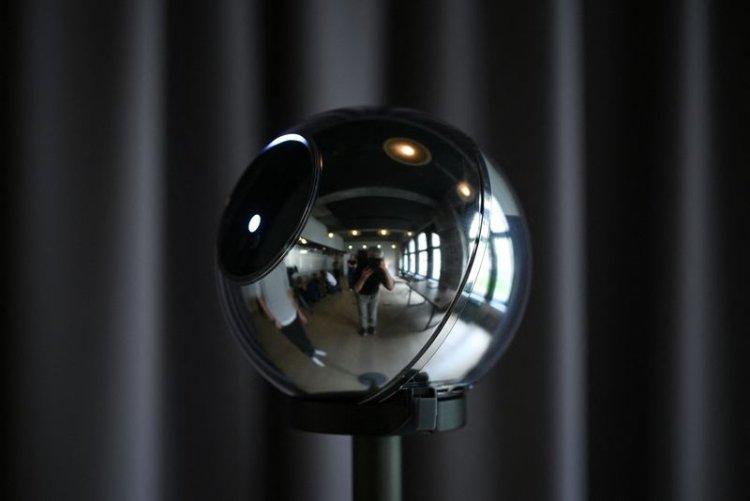Early adopters in Mexico lend their eyes to global biometric project
By Anna PortellaMEXICO CITY (Reuters) - Eager early adopters recently descended upon a Mexico City cafe where their eyes were scanned by a futuristic sphere, part of an ambitious project that ultimately seeks to create a unique digital identification for everyone on the planet.Mexico is one of nearly three dozen countries where participants are allowing the sphere, outfitted with cameras and dubbed an orb, to scan their iris. The project's goal is to distinguish people from bots online, while doling out a cryptocurrency bonus as a incentive to participate.The so-called Worldcoin project is a biometric verification tool led by Sam Altman, the chief executive of Open AI, and the crypto company he co-founded, Tools for Humanity."(Privacy) is something that doesn't worry me too much," said Jose Incera, after allowing his iris to be scanned in exchange for the equivalent of nearly $54 in Worldcoin's cryptocurrency."In the digital era we're living in, sharing your information is unavoidable.

By Anna Portella
MEXICO CITY (Reuters) - Eager early adopters recently descended upon a Mexico City cafe where their eyes were scanned by a futuristic sphere, part of an ambitious project that ultimately seeks to create a unique digital identification for everyone on the planet.
Mexico is one of nearly three dozen countries where participants are allowing the sphere, outfitted with cameras and dubbed an orb, to scan their iris. The project's goal is to distinguish people from bots online, while doling out a cryptocurrency bonus as a incentive to participate.
The so-called Worldcoin project is a biometric verification tool led by Sam Altman, the chief executive of Open AI, and the crypto company he co-founded, Tools for Humanity.
"(Privacy) is something that doesn't worry me too much," said Jose Incera, after allowing his iris to be scanned in exchange for the equivalent of nearly $54 in Worldcoin's cryptocurrency.
"In the digital era we're living in, sharing your information is unavoidable."
In a video interview, Sam Sadle, the public policy chief at Tools for Humanity, sought to calm worries over the project's use of personal data.
After the orb scanner captures each user's iris, it converts the image into a unique numerical code called an iris code, which Sadle stressed can only be used to prove the user's identity.
"The point of the iris biometrics is simply to confirm that you're human," he said. "The image on default is deleted and the only piece that is kept is the iris code."
Despite the professed safeguards, the project has generated concerns over security risks, including from Agneris Sampieri, a policy analyst with digital rights group Access Now.
"They don't clearly mention the time frame in which the biometric data they collect will be processed and retained," she said, adding that the ownership of the iris code is also unclear.
(Reporting by Anna Portella; Writing by David Alire Garcia; Editing by Christian Schmollinger)
What's Your Reaction?

















